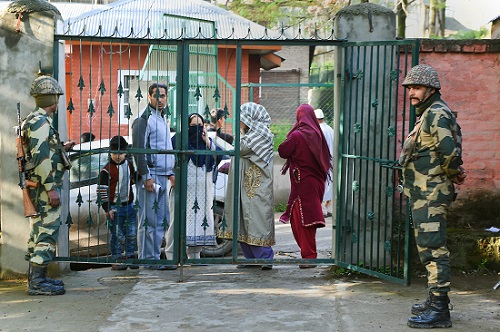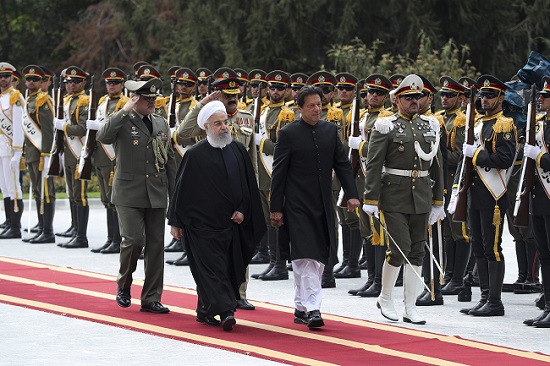Dr. Alexander Douglas specialises in the history of philosophy and the philosophy of economics. He is a faculty member at the University of St. Andrews in the School of Philosophical, Anthropological and Film Studies. In this series, we will discuss the philosophy of economics.
Scott Jacobsen: I want to shift the conversation into a brief foray in pseudoeconomics. Things purporting to be economics or some precise notion of international and national finance but, simply speaking, not connecting to the real world and, in fact, doing some time widespread damage. What defines pseudoeconomics?
Dr. Alexander Douglas: I don’t think ‘pseudoeconomics’ is a particularly useful category. To show why, let me say something about pseudoscience in general. Engaging in pseudoscience means aping the concepts and terminology of the sciences without taking on the critical methods that make them reliable. On this definition, to put it bluntly, much of economics is pseudoscience. These are fighting words, so let me try to explain carefully.
The concepts and terminology aped by economists consists mostly of mathematical notions. Since Stanley Jevons, economics has become increasingly mathematical; today it is probably the most heavily-mathematised applied subject with the possible exception of physics. But whereas certain areas of physics, quantum mechanics for example, can boast astonishing powers of predictive precision, economists don’t gain rewards in predictive power in proportion to their mathematical pains. The mathematics seems to be there only for show, or for intimidation. And this is a symptom of pseudoscience; one thinks of the intricate yet, in the end, irrelevant probability equations found in the work of Intelligent Design proponents like Michael Behe.
Alexander Rosenberg explained the lack of predictive precision in economics back in 1994, and I think the explanation holds. Physicists build complex mathematical models based on laws that have been rigorously tested empirically. Observation and experiment confirms that the crucial laws hold, and hold to very precise degrees. Something that really helps for testing a fundamental law is having distinct laws that concern the same properties. Take the Newtonian law, force equals mass times acceleration. To test this, you need to measure mass, but most ways of measuring mass – using scales for instance – presuppose the truth of the law. Happily there are other laws, e.g. Hooke’s spring law, that let you test mass without presupposing the truth of the Newtonian law. By measuring the mass of an object using the spring law – the way we measure it in outer space – you can then measure acceleration and force to see whether the Newtonian law bears out. In economics, however, you have laws that relate human behaviour to ‘utility functions’, yet there is no way to test a utility function except by observing behaviour. To infer a utility function from behaviour, you need a law connecting the two, yet you can’t test how well that law holds up unless you know some utility functions. Thus any alleged law-like connection between utility and behaviour – the assumption of maximisation – is something that we can’t test to any degree of precision. So why build incredibly complex mathematical models around functions representing causal relations that, for all we can scientifically know, might be quite wrong? This, to me, looks like pseudophysics: it copies the style but not the substance.
Economists often reply to me, when I make this point, that not all economists believe in utility-maximisation. There are models, they say, where this assumption is relaxed and replaced with more ‘realistic’ ideas about how people’s utility-functions govern their behaviour. What they don’t realise is that there is no empirical basis for saying that such assumptions are any more or less realistic. Assume that people don’t fully maximise their utility – say they use heuristics and ‘satisfice’. Now we can read a different utility function off their observed behaviour. How do we know that this assumption is ‘realistic’? Certainly not by seeing whether observed behaviour is what we would expect given the ‘satisficing’ assumption. For to know that, we need to know the utility function as well as the observed behaviour. And yet we just saw that we can only get to it by making the assumption we were trying to test.
Utility, said Joan Robinson, is a concept of impregnable circularity: there just isn’t any way for experiment and observation to break into the circle.
Naturally there is a great deal of mathematical interest in, say, decision theory and game theory. Interesting theorems can be proven in these branches of applied mathematics. To apply them to human behaviour in any predictively powerful way, we would need bridge-laws, formulating the degree to which real human behaviour implements the abstract mathematical model described in those sciences. But since human behaviour is the only observable thing, there just isn’t any scientifically respectable way to derive such bridge-laws.
Simply assuming that the results of a branch of applied mathematics have any relevance to the behaviour of a physical system – that’s pseudoscience rather than science. It has the outward elements of much modern science – mathematics and observation. But it fails to connect them together in the manner of a proper science. Since economics is, to this extent, pseudoscience, I don’t think it’s very useful to talk about pseudoeconomics; in a way I’d say that all economics is pseudoeconomics and a proper, mathematically-advanced science of human action lies in the future at best. But I’ll try to answer your further questions about pseudoeconomics by trying to imagine myself in the point of view of a working economist.
Jacobsen: What are some examples of pseudoeconomics in action? Examples of pseudoeconomics on the Left and on the Right, because this may be a non-partisan issue, but something of importance in the light of known damage from pseudoscience and pseudomedicine. How can pseudoeconomics be combatted?
Douglas: Again, I’m sceptical of the whole enterprise of economics, so the best I can do is report what economists say on this. Simon Wren-Lewis has written actively about what he would probably be happy to call ‘pseudoeconomics’; he’s collected this writing into a book called The Lies We Were Told. Some of his examples:
(1) The consensus among macroeconomists at top universities was that austerity was a damaging and unnecessary policy for the UK government to pursue, but the media reported this as a matter of contention among economic experts.
(2) The consensus among academic economists in general, as well as most experts with relevant knowledge, was that Brexit would have serious, harmful economic consequences. Again the media reported this as a balanced debate splitting the experts.
(3) Economic opinion on the economic effects of immigration does not bear out the alarmism that politicians such as Donald Trump exploit during their campaigns.
Note that these aren’t really cases of bogus economics; they are, rather, cases of misrepresentation. You’re not lying, nor even engaging in pseudoscience, if you go against the consensus opinion of academic economists. But you’re lying if you suggest that there is a consensus where there isn’t, or vice-versa. That seems to me to be the sort of thing Wren-Lewis is talking about. I’m happy to defer to his expertise on the question of what academic economists tend to believe.
Those are examples of pseudoeconomics on the Right, I suppose. I think Wren-Lewis could cite a similar example on the Left, in the case of Modern Monetary Theory (some of his posts on it are here). MMT is a school of economics that has a growing following on the blogosphere and is mentioned positively by Alexandria Ocasio-Cortez among others. Wren-Lewis is a critic of MMT, but his criticism is of what it says about mainstream economics. I think he’d agree with a statement something like this: MMT portrays mainstream macroeconomists, such as Wren-Lewis, as supporting policies that keep the unemployment rate higher than it needs to be, simply because they don’t understand the mechanisms of state spending. Wren-Lewis strenuously denies this, of course, though I don’t think he disagrees with any of the other factual claims made by MMT (he disagrees with MMT economists on policy recommendations, but it’s standard for economists to disagree over those).
Paul Krugman seems, for example in this blog post, to suggest that MMT is ‘pseudoeconomics’ in a stronger sense: it overlooks some crucial facts about how our economic institutions work. Krugman, however, doesn’t seem particularly well-informed about what MMT economists actually claim (one of them, Stephanie Kelton, took him to task on this). This, then, is a case of Krugman doing pseudoeconomics on my modified definition: representing economists as believing things they don’t actually believe.
Pseudoeconomics in this sense is only effective because of the prestige accorded to the opinions of economists. If the ratings agencies of the mind downgraded their opinions, nobody would bother with pseudoeconomics. Nobody bothers misrepresenting an unvalued opinion.
Jacobsen: Similar to the demarcation problem with science and non-science, how can we draw a line between economics and pseudoeconomics?
Douglas: I have no working theory on the demarcation problem. But I’ve tried to explain why I see economics as being on the ‘wrong’ side of the demarcation. To the extent that much successful modern science involves the application of mathematics to the natural world, the application itself is governed by a set of critical, empirical methods. Working on conic sections is amusing and edifying, but only a good track record of predicted observation justifies us in applying parabolas to the motion of projectiles.
Economics tries to skip to the end by working hard on the mathematics and then merely assuming its applicability to a portion of the natural world, namely the one made up by our bodies, our tools, and their various motions around the surface of the globe. This certainly forms a physical system of some sort, and we might one day hit upon a mathematical model that tracks its behaviour. But I see no reason to think that model will have anything to do with rational choice theory, which is really just a mathematical elaboration of our untested intuitions about human rationality, nor with the supposedly more realistic ‘behavioural models’, which are just mathematical elaborations of our untested intuitions about human irrationality.
Jacobsen: Thank you for the opportunity and your time, Alex.
Photo by NeONBRAND on Unsplash










